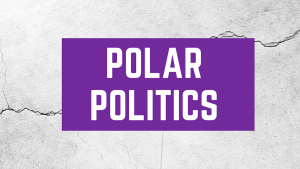Keep it where it’s at
January 23, 2017
Showing up consistently in the United States’ political arena, politicians argue over whether to raise the minimum wage to a proposed $15. Over the span of the election season, candidates like Bernie Sanders argued for said wage increase. On the actual election day, several states voted to increase the minimum wage and several cities like D.C, New York and Seattle increased the minimum wage to $15 an hour. In conservative beliefs, the minimum wage must stay at its current state to bolster employment and decrease poverty.
The minimum wage currently rests comfortably at $7.25 nationally which, adjusted for the inflation rate, would place the accurate minimum wage at $7.24 as reported by CNN Money. Using this indicator, the minimum wage remains exactly where it should due to inflation rates to keep in pace with businesses and limit unemployment.
If the minimum wage increases, so will unemployment; no business will pay the insane rates required for a low skilled job. Reported by the Cato Institute in 2012, “The New York State minimum wage increase from $5.15 to $6.75 per hour found a ‘20.2 to 21.8 percent reduction in the employment of younger less-educated individuals.’”
In the same vein, job loss would exponentially hurt in the nation; just a $9.50 new wage would result in 1.3 million jobs lost across the U.S. only bolstered by new advances in technology through implementing self-service kiosks in replace of employees. The yearly salary of a minimum wage worker, $15,080, does not constitute an increase to a whopping number of roughly $31,000.
The current price to buy and maintain a new self-service kiosk, like McDonald’s has already begun to do, ranges from $3,000 to $20,000. Already that price burgeons with the current minimum wage and would dramatically increase by an insane price hike to $15 an hour. With per employee’s pay at $31,000 a year including time off or efficiency issues, the $15 minimum wage, and self-service kiosks having the sole cost of roughly $20,000 on the higher end using computer efficiency, the choice for businesses becomes clear.
Simple math can tell anyone that an increase in the minimum wage would benefit an extremely small amount of those who somehow manage to keep their jobs, not to mention the price hikes all businesses would implement to balance wage increases. It simply cannot result in a feasible solution to actually benefit the lower class in America. Seattle tried it and it failed miserably, with employment falling for the first time significantly since the recession.
Quieter arguments for a happy medium of $10.10 instead of $15; economists believe this compromise as more feasible, although still not a great alternative for the working class surviving off the minimum wage.
However, I propose to use a different system that does not inhibit the cost increase on business and instead make it the government’s responsibility to help those individuals below the poverty line, especially with families. The Earned Income Tax Credit (EITC) allows for government subsidies and tax credits accrediting 40% of the earned income back to impoverished families, which ideally will increase individual yearly income by roughly $5,548. The EITC shows actual progress on combating poverty and benefitting the families that truly need it in the United States.
Unfortunately, to left-wing politicians, hearing $15 seems much more exciting.









Dudley Doright • Jan 23, 2017 at 6:57 PM
Well now, raise it for sure or have the Govt subsidy to it- Not! Neither! Allow the minimum wage to pay for costs needed, for those individuals still being dependents on someone’s taxes. Push them (the minimum wage earners) to better themselves with a skill or education and rip that dependency status, from the house that helps them. So they (the minimum wage earner) may become a productive citizen, tax contributor and grow the US with his/her skills or education.